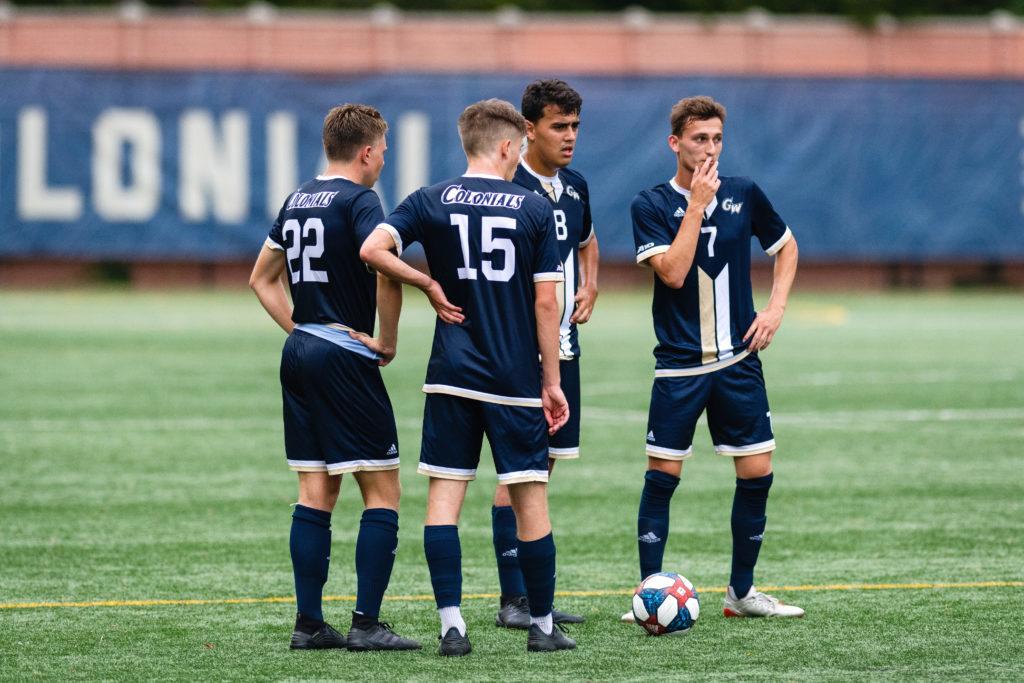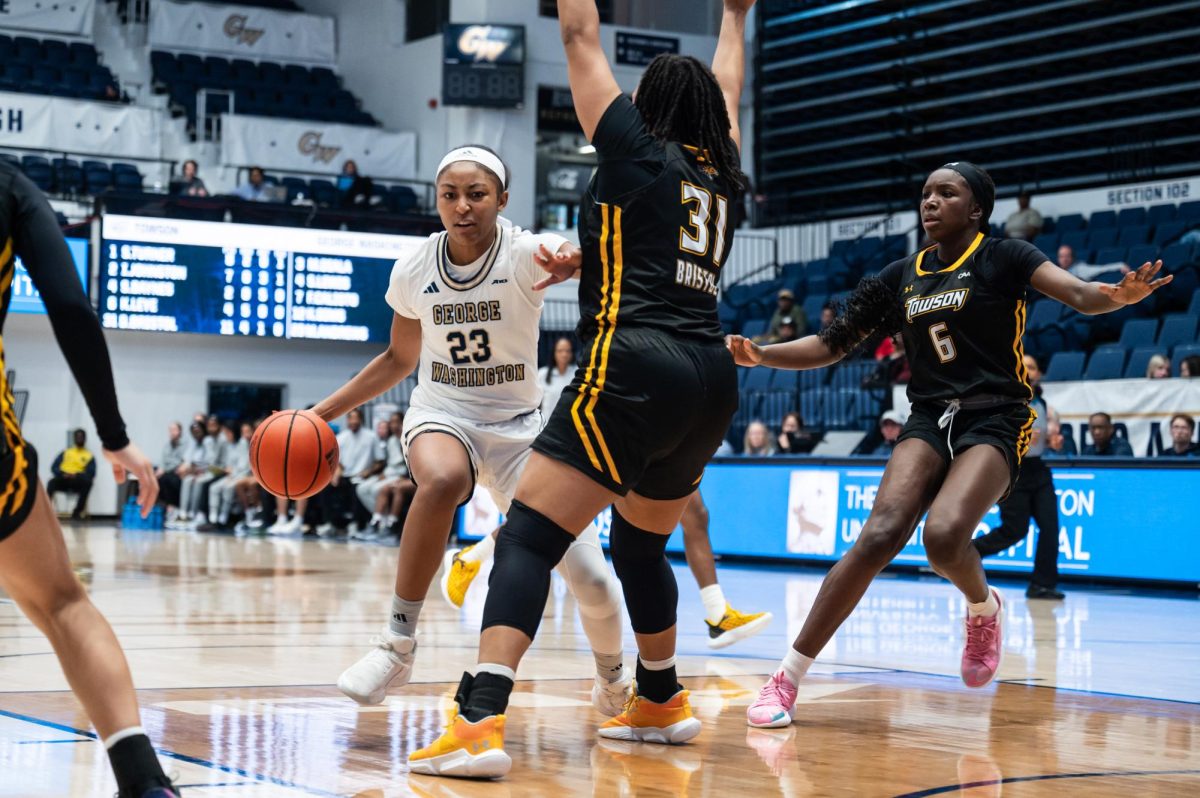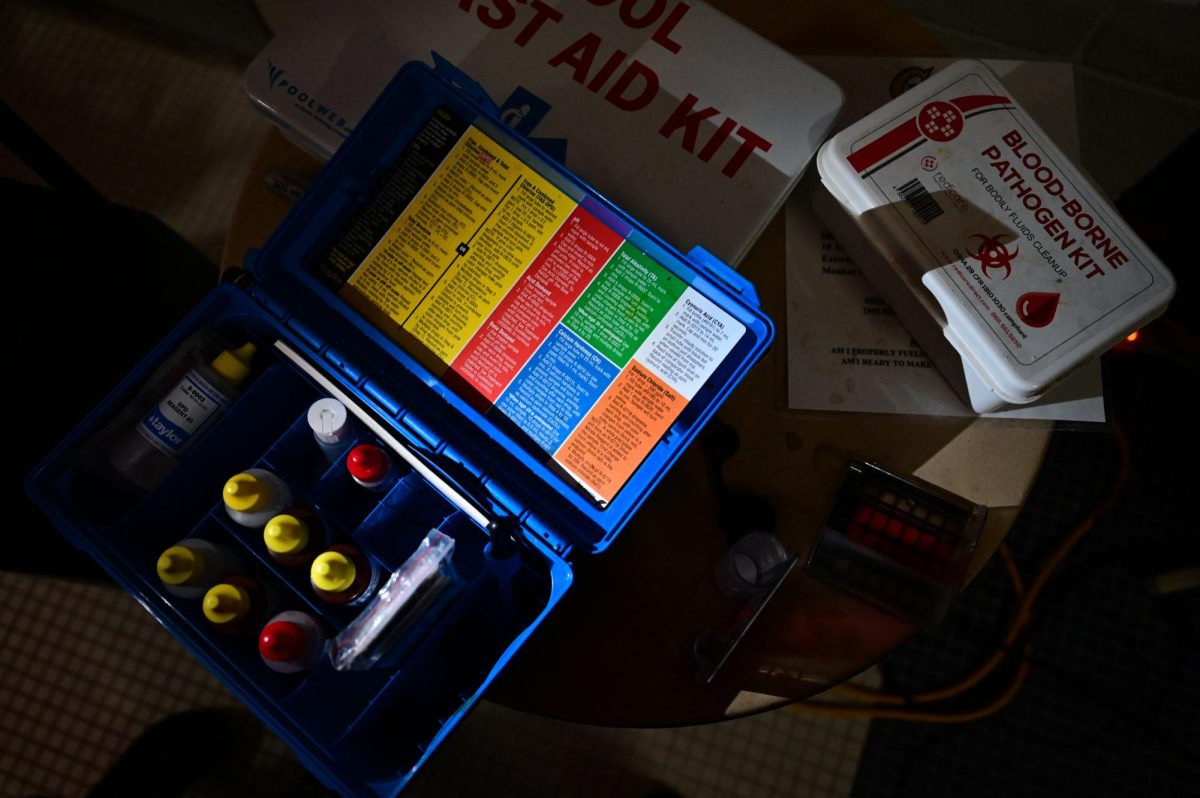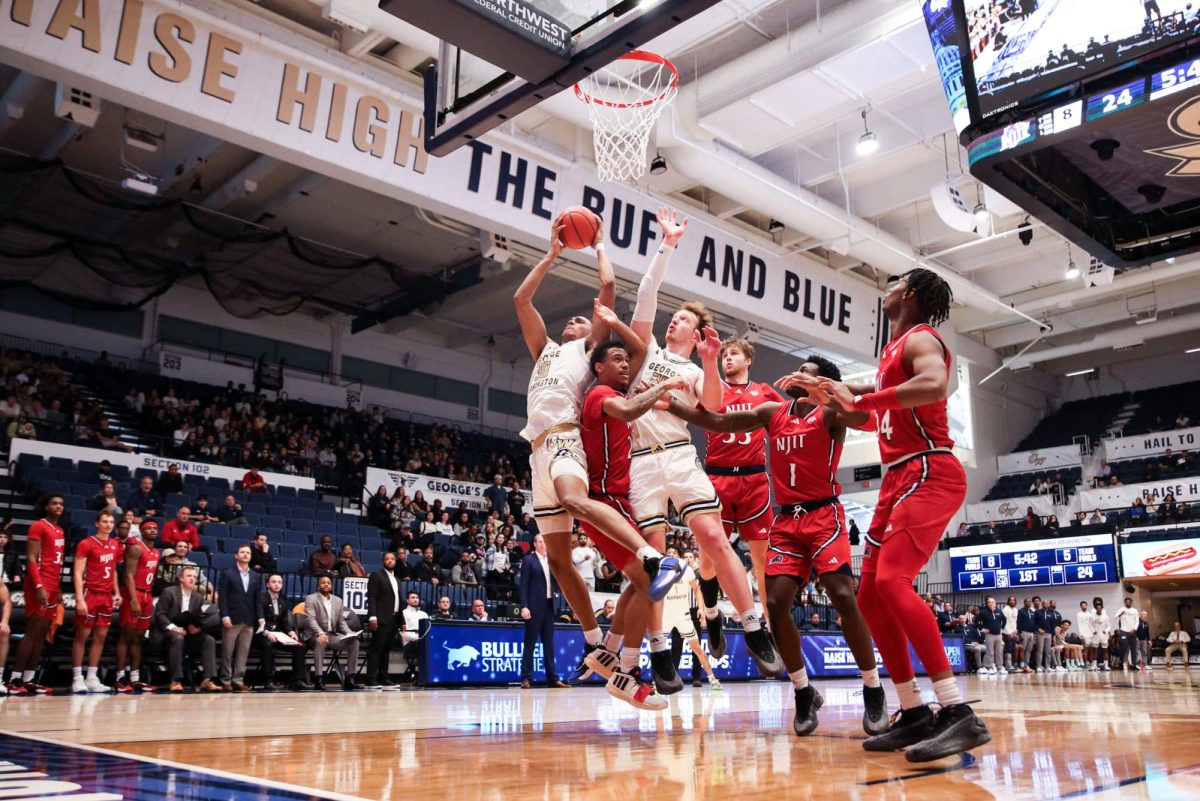Men’s soccer is trying to incorporate mental health education into its off-field training.
The team is the first in the District to receive a certification in mental health training from Let’s Empower, Advocate, and Do last week. Players said the experience helped them understand avenues to reduce stress, identify warning signs of mental illness and find proper ways to seek help through team-based and University resources.
Kyrah Altman, the co-founder, executive director and chief executive officer of LEAD and a 2019 graduate, said the training focused on spreading awareness of mental illness symptoms and provided players with plans to follow in the case of a crisis, which could take the form of a panic attack or suicidal thoughts.
“Instead of just waiting for something to escalate or symptoms of mental illness to become worse and worse, we instead identify early signs and symptoms of a mental illness or substance use disorder and get the people the support that they need for faster and more effective recovery,” Altman said.
She added that LEAD works alongside industry experts, like sports psychologists, to tailor the training toward student-athletes. Altman said players discussed common mental health issues, like anxiety, among student-athletes during the two-and-a-half-hour-long training.
Altman said the certification lasts for two years to encourage programs to go through the training again and ensure new players experience the training.
“There are going to be new athletes after two years,” Altman said. “We want the entire team to have the resources to respond and to help one another and just take care of their mental health proactively.”
She added individual student-athletes who completed the training will receive a monthly newsletter centered around educational and sport-focused mental health resources. Team members will also gain access to webinars specializing on topics like self care and stress management, Altman said.
Head coach Craig Jones, who scheduled the training for his team, said players and coaches find themselves as “first responders” to mental health challenges. He said forming a foundation of what mental illness warning signs look like will help the team care for one other.
“We do find ourselves as the first responders, so to have an idea how to deal with that, then passing that on to the professionals who do this on a daily basis, that’s kind of the main thing I wanted to get out of it,” Jones said.
Counseling and Psychological Services at the Colonial Health Center provides individual and group counseling services, substance abuse and mental health series and trainings. The CHC also provides information on suicide prevention, resources and hotlines and mental health assessments.
Jones said the services provided by the University could include more student-athlete specific resources, like sports psychologists.
“Being a student-athlete brings its additional stresses, so I think if there were potentially other areas where our guys could pursue, specifically knowing the additional stresses in their lives as an athlete, then I think that will be great outside of what’s currently offered now in GW’s counseling center,” Jones said.
Athletic department spokesman Eric Detweiler said Chris Hennelly, the associate athletic director of student-athlete health, well-being and performance, has begun emailing student-athletes with tips on mental health awareness.
Detweiler said Hennelly trained about 60 coaches and athletic department staff in mental health first aid, which aims to educate trainees to “identify, understand and respond to signs of mental illnesses and substance use disorders.” He added that Hennelly aims to educate all coaches and most of the athletic department staff in the course by the start of next spring semester.
“He schedules regular speakers on topics as well, such as bringing in an expert on eating disorders in July for a talk with coaches,” Detweiler said in an email.
In addition to the discussion, men’s soccer attended a 90-minute session on stress management and self care. Senior defender Reese Moore said the team learned breathing exercises to combat the stress associated with balancing athletics, his course load and his social life.
“I have bad anxiety and I get stressed out a lot, and I could never really seem to find exactly what it was to calm myself down,” Moore said. “I’m going to try and use some of these breathing practices that have really made me feel relaxed over the past few days.”
Moore said every team should go through a similar training because being a student-athlete adds another layer of stress to college life.
“People are thinking about the future, people are thinking about their sport if you’re a student-athlete, and then obviously focusing on school as well and social life, so there’s a lot going on,” Moore said. “Everyone should be aware of techniques and things that can help you through times when you’re stressed or having a hard time.”





